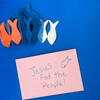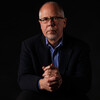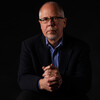With all due respect to the Holy Scriptures, The Desire of Ages and other inspirational books, I cut my earliest theological teeth on Uncle Arthur's Bible Stories.
Before I could decipher words, the colorful pictures there painted a graphic portrayal of the plan of salvation. The images of Pentecost were strangely riveting, flames sprouting from the believers' heads — tongues of fire, my mother said.
Those tongues made the Holy Spirit seem very real to me then. It brought life and energy and courage. It caused stumbling, bumbling disciples to become fearless apostles. The man who denied his Lord baptized 3,000 new believers, all because of Holy Spirit power. With tongues of fire and fire on their tongues, they turned the world upside down.
But through the years, I began to wonder about the Spirit. It became more of a ghost, a Holy Ghost to be sure, but increasingly vague, a bit mysterious — even dangerous. I recoiled from tales of church folk "caught up in the Spirit" rolling around in the aisles, foaming at the mouth. It sounded as compelling as rabies.
Adventists have carefully tried to avoid the extremes of so-called Spirit manifestations. Realizing the heart can be ultimately deceitful, we have found security in knowledge. But that effort can also callous our hearts to the real work of the Spirit and endanger us to the divine lament: "These people draw near to Me with their mouth, and honor Me with their lips, but their heart is far from Me," (Matthew 15:8 NKJV).
I shudder to consider the potential truth of an observation I once heard: If God were to take the Holy Spirit out of our midst today, about ninety-five percent of what we are doing in our churches would carry on ... and we would not know the difference.
That thought gives me pause. It forces me to ponder what room I have given the Holy Spirit to work in my own life.
The Spirit doesn't need us; we need the Spirit. And whenever and wherever it comes, hearts are convicted and lives are changed. At times it tiptoes in quietly. On other occasions, as at Pentecost, it sweeps in with a mighty, rushing wind, moving all in its path.
I opened the pages of The Bible Story once more, recently. There were the familiar images, the tongues of fire as brilliant as ever, in an event nearly 2,000 years past.
The Spirit indeed is still willing. Our flesh indeed is still weak. Our human condition is still the same — in need of those same tongues of fire.
It's high time to move the Pentecost story from the past to "current events."
"If God were to take the Holy Spirit out of our midst today, about ninety-five percent of what we are doing in our churches would carry on ... and we would not know the difference."










